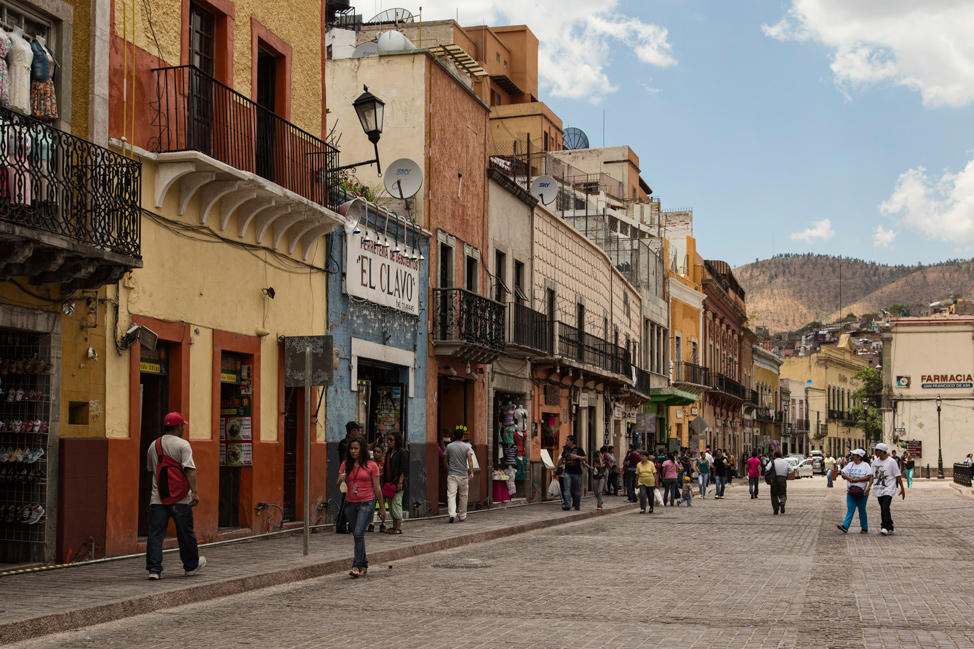Know Before You Go: Long-Term Travel Checklist
18 Things to Do Before Leaving for Long-Term Travel
Planning out a long-term trip, whether you’re leaving for six months, one year, or indefinitely, brings up some serious challenges. Aside from having a to-do list you’re never quite sure you’ll be able to accomplish, you’ll likely spend a lot of time wondering if there aren’t a dozen important things you’ve forgotten to put on the pre-travel checklist in the first place!
Don’t worry: you’ve got this. Long-term travel is one of the most invigorating, exciting, and life-altering things we have ever done. Tomorrow’s joy is absolutely worth today’s stress.
If you’re in the midst of planning a stint of long-term travel, be sure to add these 18 things to your pre-travel checklist. Future-you will be very grateful.
Financial considerations
Money, money, money: without it, long-term travel is definitely not a possibility!Be sure to set yourself up for financial success on the road – here’s how.
Make a budget.
There’s no way to know how long you’ll be able to be gone without calculating out how much you’re going to spend!
There are plenty of opinions on how to best make a travel budget, but this is our preferred method: take the full amount of money you have to spend, and start by deducting any fixed, major expenses (flights, travel insurance, monthly payments you’ll need to make, expensive tours booked in advance like treks or safaris).
After that, take the remaining amount of money and divide it by the number of days you hope to travel.
Voila! You have a daily budget.
Just don’t forget to keep track of your expenses on the road so you don’t blow it!
More on budgeting, including what app to use to help with tracking expenses, in this post on how to travel long-term and this guide on making a comprehensive long-term travel budget.
Get the right credit & debit cards.
Ideally, you’ll want to find a debit card with low-to-no ATM fees and no foreign transaction fees (we recommend Charles Schwab checking accounts if you’re from the USA), and a credit card with no foreign transaction fees and (preferably) a rewards program.
In Canada, consider TD Bank for a debit card – with a minimum balance there are no foreign transaction fees. Also Scotiabank may be a good option depending on where you are going – they have many partner banks around the world that you can use where no withdrawal fee will be charged. Credit cards are a bit more complicated! See this thread for some great discussion.)
Whittle down as many monthly bills as possible (and automate the rest).
The last thing you want interrupting your long-term travels is a reminder of your old life in the form of an angry financial institution wondering why you haven’t paid them.
Before leaving, knock out as many of your monthly bills as you can, and automate the rest.
Don’t forget to set a reminder on your phone once a month to check on your accounts and make sure everything is still going smoothly!
Contact your financial institutions.
Checking accounts, savings accounts, credit cards – any account you may need to access from abroad, be sure that they know you’re leaving.
Many banks have a way to do this online, making the process very simple and quick. Also, one good tip that our bank told us about is to use an ATM upon arrival at the airport – this serves to tip them off that you have moved onto your next location!
Logistical
There are no shortage of logistical challenges to contend with when leaving for long-term travel – here are a few that are especially important not to overlook.Send your mail somewhere else.
Whether it’s a PO Box, your parent’s house, or a virtual mailbox (we have one through Traveling Mailbox that has worked well for us), you’ll need to maintain some kind of permanent address in your home country while you’re gone.
Deal with your living space.
Own your home? Decide whether to rent it out or sell, and move ahead with those plans as early as you can.
Renting? Look into finding a subletter, or simply not renewing your lease.
The earlier you have your living situation sorted out, the smoother the planning process will feel.
Purge your belongings (and store what’s left).
I promise, however much stuff you get rid of before leaving for long-term travel, you’ll still come back wondering why in the world you saved this thing or that thing. In other word – short of throwing out extremely sentimental items, don’t worry about tossing too much.
Whatever is left after your purge is complete will need to be stored, either with a trustworthy friend or family member, or via a storage unit.
If you need to rent a unit, begin pricing them as soon as possible – looking at prices may help you reassess just how much stuff you “need” to keep!
Scan important documents.Passports, birth certificates, credit cards (front and back) – there are conflicting opinions on the best way to carry these things with you, but we personally feel that storing them on something like Dropbox is more secure than carrying physical copies with you abroad. Having copies scattered in different parts of your luggage will never hurt though, and will ensure that you can access them in a pinch. This step should never be skipped on your pre-travel checklist.
Leave your job (or not).
Many long-term travelers plan on quitting their jobs, and if so, you’ll need to decide as soon as possible when to leave so that you can calculate your travel budget accurately and plan your final days before leaving.
If you’re planning on asking for a leave of absence instead, then you’ll need to plan even further in advance. Carefully consider how to pitch the idea to your boss, go cautiously, and good luck!
Worried about running out of money while abroad? There are plenty of ways to make money on the road. These two posts (one, two) are stock full of plenty of ideas.
And finally, Travel
Without a doubt, this is the most fun part of the long-term travel planning process: going through the steps that directly make your dreams a reality!
Pick a starting point; book tickets to your first destination.
I have to admit, deciding where to start is one of my favorite parts of planning a trip.
If you’re planning on exploring one region in particular (say, Southeast Asia, Europe, or Central America), we recommend flying into the least expensive city and working from there – not being tied to a specific date or destination is one of the biggest benefits of long-term travel, so make use of it early!
With limited exceptions, we wouldn’t recommend booking much beyond your first destination or two – plans can change quickly on the road.
Purchase travel insurance.
Travel insurance is a must on any trip – be sure to research the kind that is right for you and buy before you go. (Note from Dalene: we will be addressing this VERY soon in another post.)
Check your passport.
Most countries require at least 6 months remaining validity on your passport and at least one empty passport page to enter their country – if your passport won’t meet these requirements at the projected end of your trip, we’d strongly consider renewing before you go.
Get any major visas.If there are any destinations you’re absolutely certain you are planning on visiting that require a lengthy visa application process, get those out of the way early on–it can be a hassle (and sometimes downright impossible) to handle on the road.
Start packing early.
There are two reasons to start checking things off your packing list early: first, to make sure you don’t forget anything. And second, to give yourself a chance to remove excess items from your piled up belongings before overpacking.
Both are very important to the process – if you have the space, I’d recommend starting to lay things out around two weeks before you are set to depart.
And if you are brave enough to consider going carry-on only, then we’ve got some tips for that too!
Lifestyle
Apart from financial arrangements and travel planning, there are a few lifestyle plans – both necessary and optional – that we suggest taking care of before leaving for long-term travel.
Make the rounds with medical appointments.
Depending on how long you’re going to be gone, this may be the last time you see “your” doctors for awhile – and regardless of your plans, you’ll want to check with them on things like travel vaccines before any trip.
Consider hitting up your dentist, primary care physician, and any other applicable specialists before heading out.
Say goodbye to favorite foods.
Though you’re about to set off to find delicious new foods abroad, you’ll likely also find yourself missing the taste of home sooner rather than later.
Whether it’s regional cuisine or specific home-cooked meals (or both), make time for all your favorite meals in the weeks before take off. Pro tip: if you’re heading to South America and/or Southeast Asia, eat as much good cheese as you can before you get there.
Set up communication with the people you love.
Your grandmother may not be the best with technology, but you may be surprised at how fast she will learn in order to keep up with you!
Download any apps you plan on using (like Whatsapp and Skype) to stay in touch with loved ones back home, and consider giving a quick how-to lesson to anyone unfamiliar with them.
Bon voyage!
author bio












